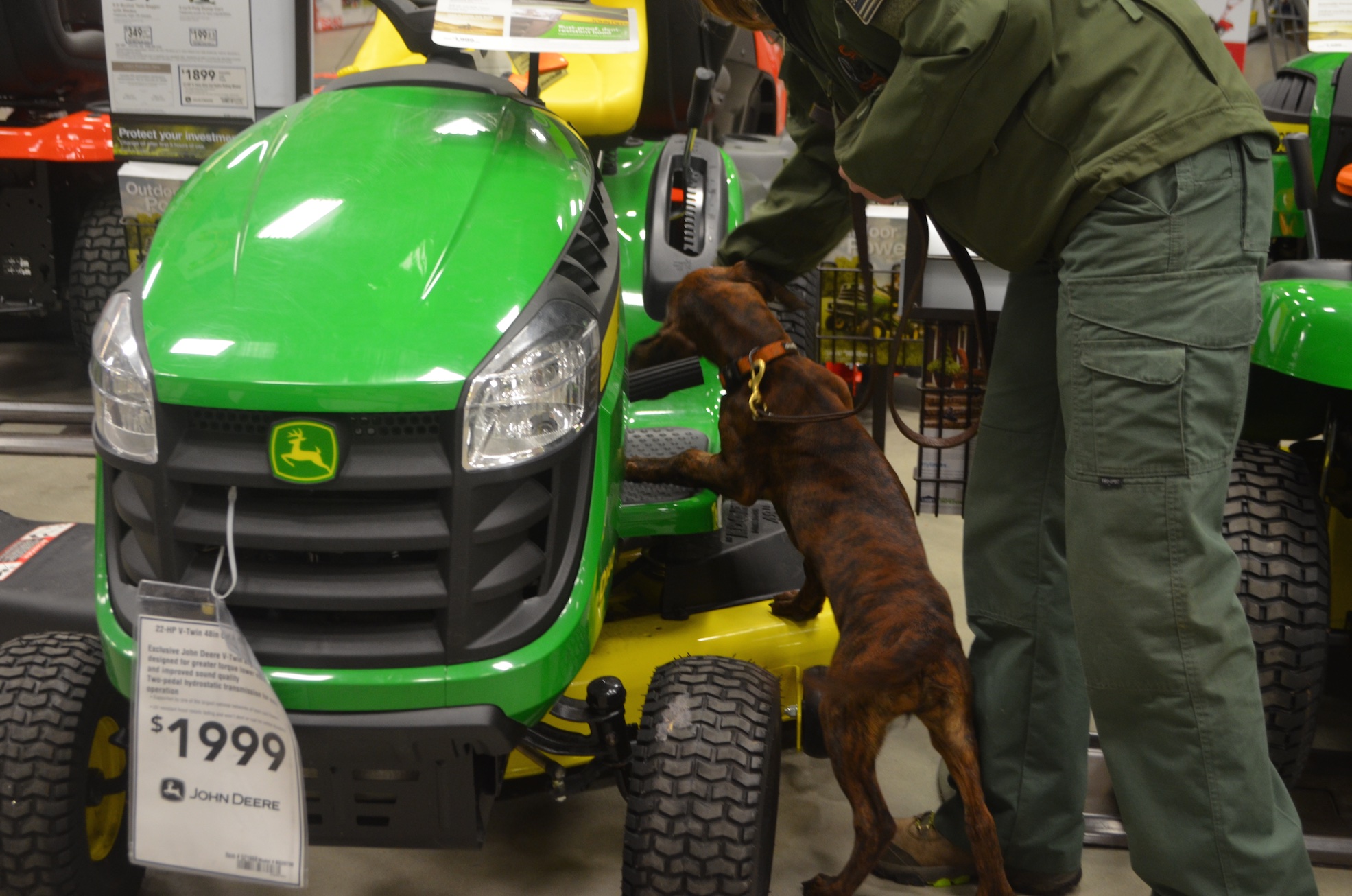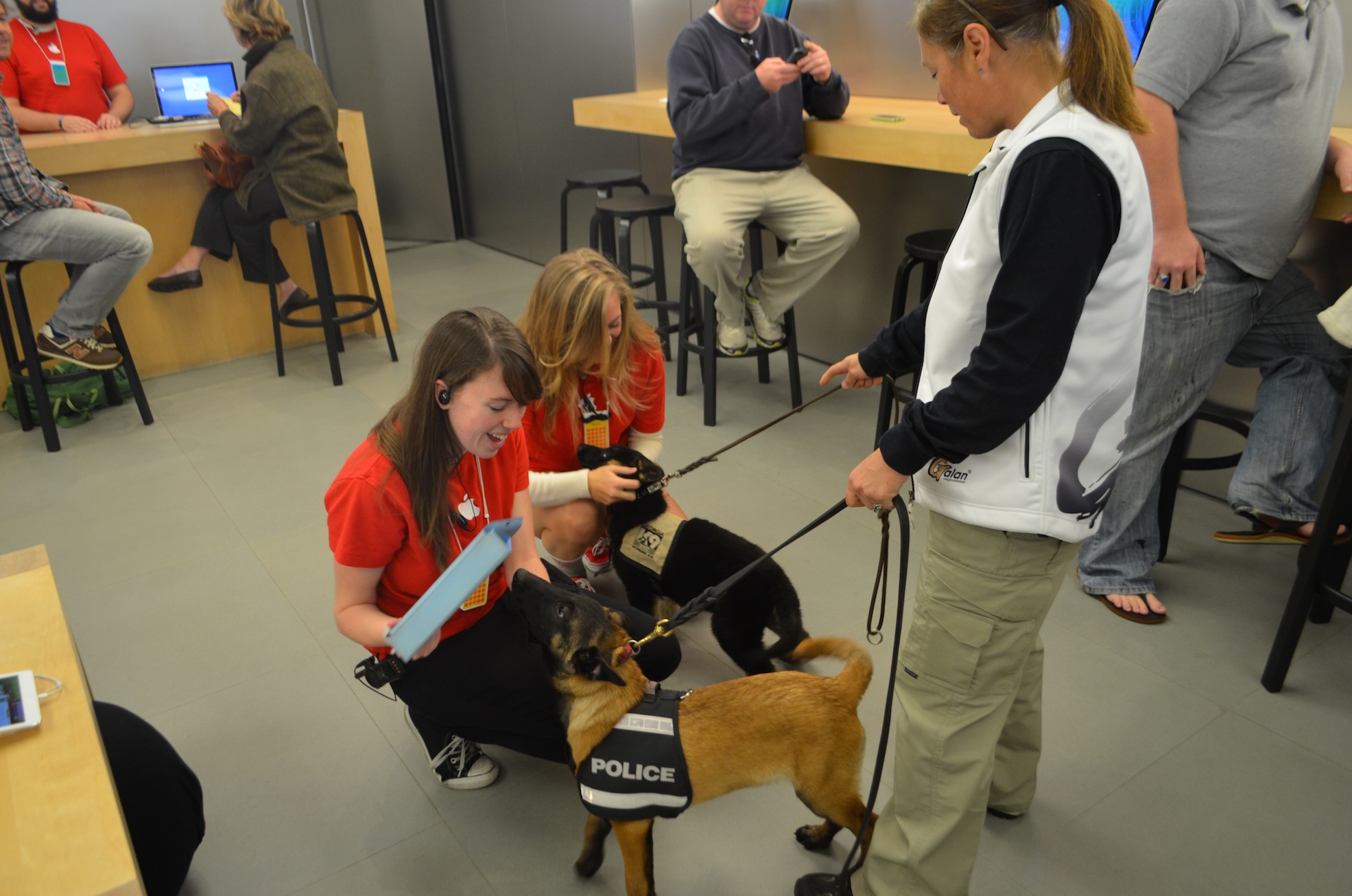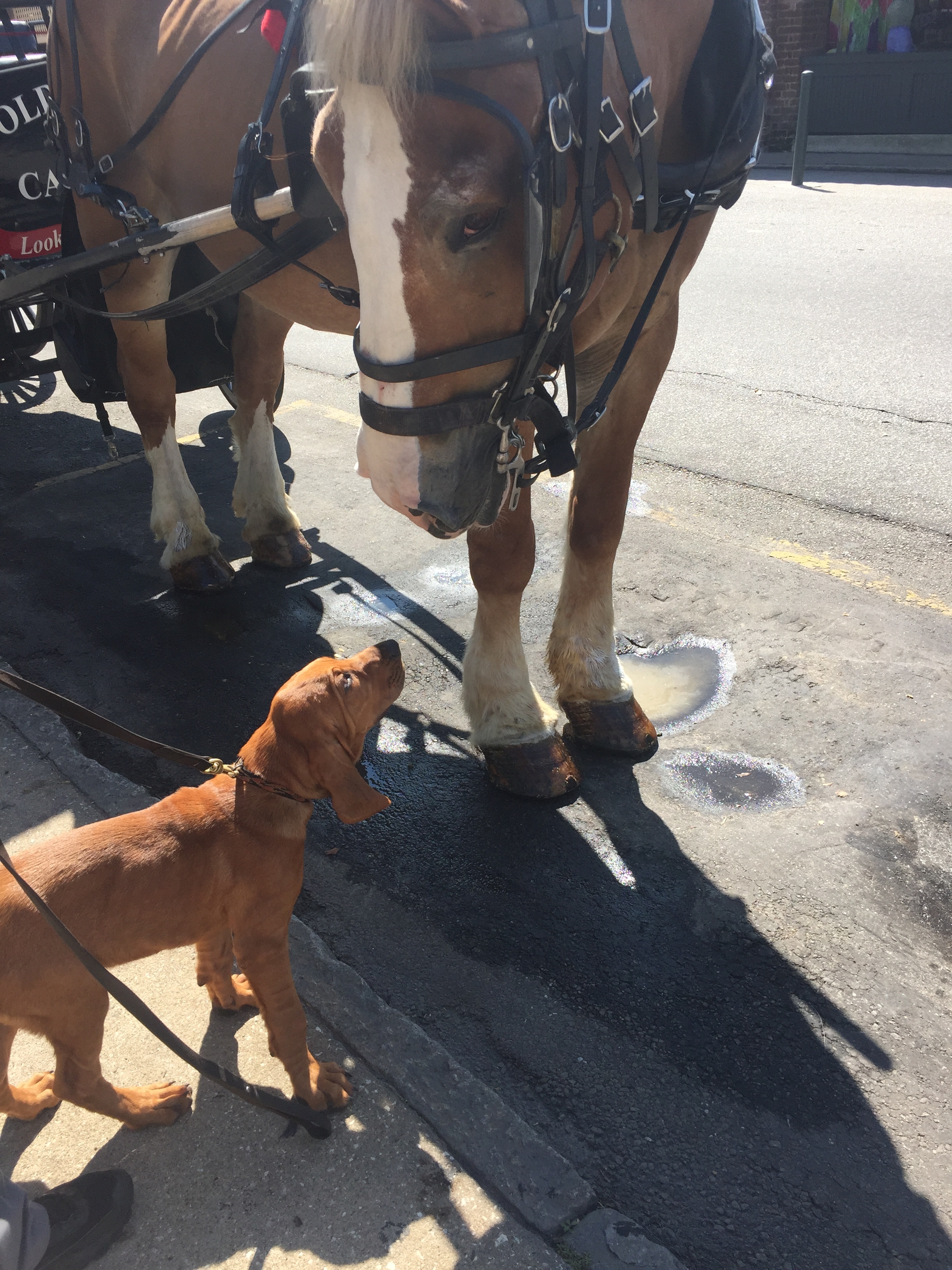Puppy Socialization

Written By: Samantha Ashby, Certified Trainer from Georgia K9 National Training Center, South Carolina
This past Christmas you finally got the cute, brown, little floppy eared, dog you have always wanted and the newness is starting to wear off. You quickly realized you have no idea how to train your new puppy or where to begin. All you do know is that you want your new little bundle of joy to live the life it deserves but have no idea where to start.
Training a new puppy starts from the moment you bring your puppy home. When raising a puppy between the age of 8-16 weeks it is important to know that these 8 weeks are crucial to the development of your dog. Georgia K9 National Training Center’s main focus for puppies during this 8-week timeframe is the following: House Training, Crate Training, Reward vs. Correction, Puppy Handling and Socialization.
Socialization has the biggest impact on your puppy. Puppies that are not properly socialized within the first 16 weeks of life tend to build a fear response that can lead to unwanted behaviors later on. In order to properly socialize your puppy you should expose your puppy to different people, animals, objects, sounds, and environments. To start you should socialize your puppy in a controlled environment. As a responsible dog owner you need to supervise your puppy’s socialization to ensure your puppy goes away from every situation with a positive experience. With that being said it is crucial that socialization stays positive at all times. To help with making training positive be sure to use lots of praise. Praise can be physical or verbal. Treats can also be helpful to motivate your dog to walk towards an object or person that your puppy may be fearful of. If your puppy shows a fear response during training it is crucial that you do not coddle or shelter your puppy. Doing so reinforces the behavior and teaches the puppy that they should be afraid. You must do the opposite by encouraging your puppy to investigate whatever it is that is making your puppy afraid. As long as your puppy has a positive experience they will learn to not be fearful.
Meeting New People
Proper socialization with people is an important part of the training process. Your puppy must trust people since they will come in contact with new people frequently throughout their life. Georgia K9 National Training Center recommends that your puppy should meet between 300-500 different people before the age of 16 weeks. These people should be of different ethnic groups, ages, and sizes.
Meeting New Animals
It is just as important for your puppy to meet different types of animals, as it is people. The more positive experiences your puppy has with other animals the less likely your puppy will become aggressive towards other animals. Puppies should be socialized with animals such as cats, birds, small animals (hamsters, bunnies, etc.), horses, other livestock, and dogs.
New Objects and Sounds
Your puppy should be okay with exploring and investigating new objects on their own. Objects that are unsafe for your puppy should also be introduced. Your puppy should have a “healthy respect” for objects that may not be the safest for them to be around. Puppies should be socialized with objects such as, but not limited to, automobiles, baby strollers, shopping carts, grills, hair dryers (on & off), and lawn equipment (on & off). Do not allow people to tease or torment your puppy with objects that may cause fear during this learning period.
New Environments
Take your puppy to different environments other than your home to help with the socialization of new people, animals, objects, and sounds. You can expose your puppy to all of these by visiting your local pet friendly stores, restaurants, and parks. If you are fortunate to live near the ocean, rivers, creeks, or lakes water exposure makes for great socialization training as well.
It is important to know that not every puppy is equal in the ability to cope with new and fluid situations. You must adapt how you train your new puppy based on their specific personality and temperament. For more information regarding training for your puppy, please visit www.GAK9.com for more information and a certified trainer can help.





